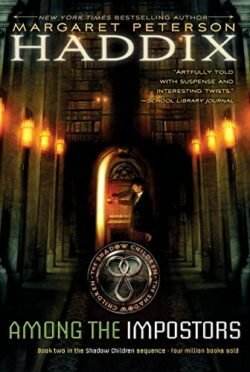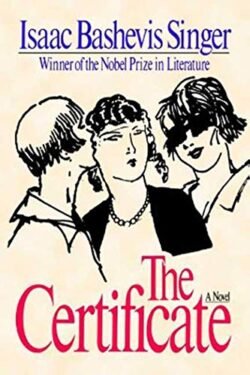“The View from Saturday” begins with Mrs. Olinski’s selection of her Academic Bowl team, a decision that surprises many in Epiphany Middle School given the diverse and seemingly unrelated backgrounds of the chosen students. As the team prepares for and progresses through the competition, the narrative delves into the backstory of each team member and Mrs. Olinski, revealing how their experiences have shaped their perspectives and contributed to their collective success. The novel is structured around four main events—a tea party, a wedding, a series of Saturday afternoons, and the Academic Bowl itself—each serving as a pivotal point in the characters’ development and the deepening of their relationships. Through these events, readers learn of Noah’s role in a wedding, Nadia’s connection with her grandfather and a sea turtle rescue, Ethan’s struggle with belonging, Julian’s experiences with prejudice, and Mrs. Olinski’s journey of recovery and self-discovery after a car accident that leaves her paralyzed. Character Analysis Mrs. Eva Olinski: A sixth-grade teacher recovering from a personal tragedy, she chooses The Souls for her Academic Bowl team, finding strength and purpose in her interactions with them. Ethan Potter: Shy and introspective, Ethan grapples with his place within his family and school. His growth is a testament to the quiet strength found in understanding oneself and others. Noah Gershom: Intelligent and organized, Noah’s role in a wedding becomes a catalyst for the formation of The Souls. His logical yet compassionate approach to problems helps unify the team. Nadia Diamondstein: Passionate about the environment and animals, Nadia learns the value of friendship and teamwork through her efforts to save sea turtles and her relationship with her half-brother. Julian Singh: The son of an Indian B&B owner, Julian’s experiences with discrimination and his natural leadership skills play a crucial role in bringing The Souls together. While specific quotes from “The View from Saturday” are not provided here, Konigsburg’s narrative is punctuated with insightful observations on life, friendship, and the beauty of human connection. The novel concludes on a note of triumph and unity, not just because of The Souls’ success in the Academic Bowl, but because of the unbreakable bond they have formed with each other and Mrs. Olinski. In conclusion, “The View from Saturday” is a compelling and heartwarming novel that celebrates the strength found in diversity and the unexpected journeys that lead to self-discovery and mutual understanding. E. L. Konigsburg crafts a memorable story that resonates with readers of all ages, reminding us of the importance of looking beyond the surface to find the true essence of a person and the value of viewing the world from multiple Saturdays. If the summary caught your interest, Consider reading the full book on AbeBooks. Explore this book on AbeBooks
Among the Impostors (Shadow Children)
As Luke Garner begins his time at Hendricks School for Boys under the alias Lee Grant, he quickly realizes that the school is not what it seems. The isolation and lack of camaraderie among the students create an atmosphere of fear and suspicion. Luke’s desire to fit in and make friends is overshadowed by the constant threat of being discovered by the Population Police. His journey takes a pivotal turn when he accidentally discovers a secret garden hidden behind the school’s walls, leading him to a group of students who share his secret. Together, they start to plan ways to resist the Population Police and fight for their right to live freely. However, Luke must first overcome his fears and doubts to truly become part of the resistance. Character Analysis Luke Garner/Lee Grant: Luke, the protagonist, is characterized by his resilience, courage, and moral compass. Throughout the novel, his character evolves from a frightened, hidden child into a more confident individual who seeks to challenge the injustices of his society. His internal struggles with identity and belonging highlight the emotional impact of living a life under constant threat. Other Students at Hendricks: While specific students are not deeply individualized, they collectively represent the broader impacts of the Population Law on children in this society. Their initial distrust and isolation serve as a backdrop to Luke’s journey towards finding allies and forming meaningful relationships. “Among the Impostors” is filled with moments that underscore the tension and fear of living as a shadow child, as well as the hope and determination that emerge from resistance. While direct quotes are not provided here, the narrative is rich with Luke’s reflections on freedom, identity, and the importance of standing up against oppression. In conclusion, “Among the Impostors” by Margaret Peterson Haddix is a compelling continuation of the “Shadow Children” series that explores the psychological and social implications of a dystopian society’s laws on its most vulnerable members. Through Luke Garner’s journey of self-discovery and resistance, Haddix invites readers to consider the value of individuality and the power of collective action in the face of tyranny. The novel not only advances the overarching story of the series but also deepens the emotional and philosophical questions raised by Luke’s circumstances, making it a thought-provoking read for young adults and older readers alike. If the summary caught your interest, Consider reading the full book on AbeBooks. Explore this book on AbeBooks
The Certificate: A Novel
David Bendiger’s journey begins with his quest to secure a certificate that would allow him to emigrate to Palestine, a dream shared by many young Jews of his generation. To obtain this coveted certificate, David finds himself entangled in a complex relationship with three individuals: Edusha, a young woman involved in the Communist movement; Sonya, who proposes a marriage of convenience to help David emigrate; and Makhlouf, a Zionist who offers David the chance at a certificate in exchange for marrying Sonya. As David navigates these relationships and his own aspirations for a literary career, he confronts the realities of love, political ideology, and the sacrifices required for personal and artistic freedom. The narrative weaves through David’s introspections, his interactions with Warsaw’s Jewish community, and the choices he faces, ultimately presenting a rich tapestry of a young man’s struggle to define himself in a changing world. Character Analysis David Bendiger: A complex protagonist, David is driven by his desires for both literary success and a meaningful life beyond the confines of Warsaw. His interactions with the novel’s other characters reflect his internal conflicts and the societal pressures of his time. Edusha: A passionate communist, Edusha represents the allure of political activism and the struggle for a cause greater than oneself. Her relationship with David challenges his political beliefs and personal ambitions. Sonya: Through her pragmatic approach to life and marriage, Sonya embodies the themes of survival and compromise. Her proposal to David highlights the lengths to which individuals would go to escape the socio-economic constraints of their environment. Makhlouf: A Zionist activist, Makhlouf represents the hope and idealism of the Zionist movement. His interactions with David underscore the complexities of Jewish identity and the divergent paths available to young Jews of the era. While specific memorable quotes from “The Certificate” cannot be directly cited here, Singer’s work is replete with reflective passages and dialogues that delve into the human condition, the search for belonging, and the conflict between personal desires and societal expectations. In conclusion, “The Certificate” by Isaac Bashevis Singer offers a compelling glimpse into the life of a young Jewish writer caught between conflicting ideologies, desires, and the quest for identity. Singer’s narrative skillfully portrays the intricacies of Jewish life in interwar Poland, making it a significant contribution to Jewish literature and a profound exploration of the human spirit. Through David Bendiger’s story, readers are invited to contemplate the universal themes of ambition, love, and the pursuit of freedom against the backdrop of historical upheaval. If the summary caught your interest, Consider reading the full book on AbeBooks. Explore this book on AbeBooks
Soon I Will Be Invincible: A Novel
The novel kicks off with Doctor Impossible, who, despite being imprisoned, plots his latest escape and scheme for world domination. His character, marked by a mix of brilliance and bittersweet humor, offers insight into the motivations and insecurities driving one of the world’s most formidable villains. Concurrently, we meet Fatale, who is navigating her new life as a superhero and member of the Champions. As Doctor Impossible’s plan unfolds, the Champions, including Fatale, grapple with internal dynamics, personal histories, and the challenge of thwarting his seemingly unbeatable scheme. The story builds towards a climax that not only tests the physical and intellectual mettle of its characters but also challenges their moral foundations and sense of identity. Character Analysis Doctor Impossible: A genius with a deep sense of inadequacy, Doctor Impossible is both the villain and a sympathetic figure. His attempts at world domination are juxtaposed with reflections on his failures and the loneliness of his quest. Grossman crafts a complex character who challenges the simplistic villain archetype. Fatale: As a relatively new superhero, Fatale’s journey is one of self-discovery and adaptation. Her struggle to find her place among the Champions and come to terms with her cyborg identity offers a compelling exploration of what it means to be human and a hero. The Champions: This team of superheroes, each with their unique powers and personal demons, provides a backdrop against which themes of heroism, sacrifice, and the cost of power are explored. Their interactions with both Doctor Impossible and each other add depth to the narrative’s exploration of good versus evil. The characters in these tales are more than just animals with human traits; they embody the complexities of human nature and societal roles, reflecting the struggles and strategies of African Americans under slavery and in its aftermath. While specific quotes from “Soon I Will Be Invincible” cannot be provided here, the novel is rich with witty dialogue, introspective monologues, and observations that cut to the heart of the superhero mythos. Grossman’s writing illuminates the inner lives of its characters, offering poignant reflections on the nature of power, the allure of ambition, and the quest for belonging and purpose. In conclusion, “Soon I Will Be Invincible” is a thought-provoking and entertaining take on the superhero genre that stands out for its character depth and narrative complexity. Grossman’s novel is a compelling read for anyone interested in the psychological underpinnings of heroes and villains, providing a nuanced exploration of what drives individuals to embrace the mantle of heroism or villainy. Through its engaging plot and rich character development, the book invites readers to reconsider the archetypes that populate the world of superhero fiction, making it a standout addition to the genre. If the summary caught your interest, Consider reading the full book on AbeBooks. Explore this book on AbeBooks




